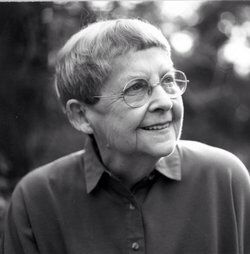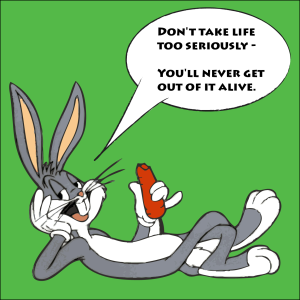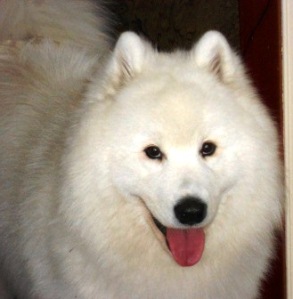 This is a story I wrote a few years back that recounts on of the major turning points in my life. I often wonder how my life would differ had I made different choices back then. Don’t get me wrong, I would not change a thing, just something to ponder at times. I think most people have similar stories in their lives, but most will not take the time to write them down. That is a true shame too, as seeing events others face helps us see we are not as alone in life as we might think. Besides, it’s sort of fun for people to see a side that is not always visible in the adult version of us.
This is a story I wrote a few years back that recounts on of the major turning points in my life. I often wonder how my life would differ had I made different choices back then. Don’t get me wrong, I would not change a thing, just something to ponder at times. I think most people have similar stories in their lives, but most will not take the time to write them down. That is a true shame too, as seeing events others face helps us see we are not as alone in life as we might think. Besides, it’s sort of fun for people to see a side that is not always visible in the adult version of us.
I Answered Yes!
“Yes,” I replied after a moment of reflection. The damage was done; there was no use in caving in at that point. Now looking back, it seems strange that, even at seventeen, I understood how such a mistake would turn into a blessing. At well past forty, I see it as the pivotal turning point in my life – I answered “yes” in a loud clear voice.
To say I was independent as a teenager is being kind. The truth is I was horribly rebellious and self-centered. Ok, all teens are to a point but what I ended up doing took it to a completely new level. No one could have guessed that by the end of the school year, so much would change. I had always been one to push the limits, this time I simply blew past the limits like an Indy race care driver rounding the last turn and heading for the checkered flag. You have to keep in mind, this was a time before classroom shootings, and such horrible events would dwarf anything I would do. It was the last days of innocence all the way around.
The year started off pretty well, I was a junior, and things looked bright. No longer was I on the bottom half of the feeding pool. High school does have its pecking order, not only within the grade you’re in but between grades too. Being in the first two years just makes you all the more a target. I did not run with the “in” crowd to begin with, so now at least, I had a few years behind me.
In school, I did not have to apply myself much to get by. Studying was easy for me but I found it to be boring. Boring was something I did not do; besides, I was just arrogant enough to think I knew everything there was to know by that point in life. What I needed was excitement, something to make life interesting. Soon I would have all the “interesting” I could handle.
On that first day, Katrina caught my eye. She was tall, beautiful and spoke with a heavy German accent, which made her even more exotic to me, sort of like Marlene Dietrich. She was an exchange student attending that year. We only had one class together – chemistry with Dr. Lamb. I made my mind up then to see if she was the interesting bit I was looking for.
Without question, Dr. Lamb was a fascinating man and one of the most influential teachers in my life. As a young man, he worked his way though college playing jazz piano in New Orleans. To look at him you would not think it as he was round, bald, with fat little fingers and covered from chest to knee in chalk dust all the time. He was the quintessential “lab coat nerd” one would expect to teach chemistry. That is until he sat behind a piano. He blew us away one day at a pep rally. At first, we could not believe he was really playing like that, but he was. I heard him play many times after that and he never fell short of being perfect. He was amazing. Dr. Lamb was one of the few people I had any respect for then. Seeing his abilities in more than one area of interest opened my eyes to my own possibilities, without regard to the boundaries other might set. I mean if this overweight, nerdy, white guy could earn his chops with the hard-nosed jazzmen of Greater New Orleans, I figured the door for whatever I wanted was open too.
Back in Dr. Lamb’s chemistry class, with some quick maneuvering on my part, I wound up at the lab table with Katrina. I knew that meant we would be lab partners. Katrina not only was attractive, she was smart, smart enough to read me right from the start, that point notwithstanding, we soon became an item and she did look good in my letter jacket. Katrina stayed with a family a few houses down from us on East Beach. St. Simons Island back then was not the place it is today. It had more woods than homes. Children had the freedom to roam the island at will and there was lots of room. The beach was a major travel route for teens and a good place to raise some hell and not get too much attention. I loved living on the beach.
In chemistry, we all had to pick projects to take on and had to keep lab books we would turn in each week for review. We had to do a write up on the project we wanted and have it approved. My first idea was a chemical form of perpetual motion. Of course, I knew it would work but Dr. Lamb had his doubts. As he put it, “I don’t think it will work, but right now for the life of me I can’t figure out why so you can give it a try.” Turns out, he was right, but it did start the ball rolling for later events.
As the year went on, I was constantly in trouble over Katrina. More than once, we were caught in compromising situations at both her home and mine and one time on the beach by the police. Of course, I was grounded but as I had a balcony outside my window, it was an easy jump to the sand and I was on my way down the beach to see her again. It had gotten to the point where the school was going to send her home for fear of her becoming pregnant. Then, Dr. Lamb took me aside and put some reality in my mind. Rather than speak to me with authority, he simply laid out the facts and told me to make a judgment on how my behavior would affect Katrina the rest of her life. This was the first time anyone left it to me to figure something like that out. They agreed that she could stay, if I would stop seeing her. Neither of us was happy about it and I do not think she really understood why I agreed to it. I’m not sure I did either; I just knew I had to.
So, I was unhappy with breaking up with Katrina, unhappy with the school, pretty much unhappy with life. That is about the time my chemistry project finally fell apart, Dr. Lamb suggested I look over all the research and see if any part could be used for other purposes. He said most progress came from the ruins of other ideas. For me, it was at least a glimmer of hope. Not may people can put their finger on an even that changed their life. Turns out, this failure was the starting point of an even that would drastically change mine.
One aspect of my research involved better energy transfer in chemical processes. I thought there might be something interesting to look for there, the nerd in me coming out. Soon, I had reshaped my project for such improvements. All chemical reactions release some form of energy. That is basically how nuclear power works, albeit with physics. Reactors make heat, heat makes steam, and steam runs turbines to make electricity. I was looking to apply the same logic to chemical reactions. It did not take people long to understand that nuclear energy had another use, a darker use – nuclear bombs. Nor did it take me long to come to the same conclusion about my work.
I was pretty impressed with how quickly Dr. Lamb figured out what I was up too. I did not refer to chemical bombs, explosions, or anything like that in my notes but by the end of the first week of my reshaped project, he was giving me another talking to, this time, he forbid from even designing the equations for such things. He warned me it was simply too dangerous. In hindsight, that may not have been the best thing to tell me. I started a duel project in secret. I would apply what I learned in class and worked out the equations and formulas on my own. In the end, I could only do the research as the materials needed for such things were under lock and key in the chemistry lab.
Again, there I was, seventeen years old, frustrated over the loss of Katrina, frustrated with the school, frustrated with being grounded (without Katrina, there was little point in sneaking out), and frustrated that the only thing that had my interest seemed beyond my reach. Funny thing about frustration, it too is like a chemical reaction, it builds up energy until it has to be released. That release came one night during a school basketball game.
Earlier that day, I had devised a plan to leave one of the windows open in the chemistry lab. It was easy to make the window look locked while it was still open. I did need an accomplice at that point, as I was too large to shimmy over the wall and through the dropped ceiling tiles between the lab and the locked supply room. I will not name my accomplice here (you’re welcome, M-), but had he known what I was up to, I don’t think he would have gone along with it. The stage was set.
During the game, we slipped into the lab, then into the supply closet and soon my device (let’s call it a device) was finished, all we needed – a place to test it. I did not know just how powerful the device would be. I mean I knew the numbers from my calculations, but to what end? Numbers can only take you so far, until you put a tangible scale to them, numbers mean nothing. That scale was coming.
We went to the near by pond and without much thinking, threw it in. What happened next was beyond my wildest expectations. The device went off with the loudest explosion I have ever heard. Later in my military life, the explosions in combat came a close second to what I heard that night. Of course, I was much closer to mine than I ever was in combat. The blast took us off our feet, a water plume rose at least 75 feet high, there was a blinding light of every color possible, the percussion took the air from our lungs, and we felt like a boulder had hit us. After the steam cleared and we picked ourselves up, the water level in the pond was down about a foot or so. What was worse, we could not hear. Thank God, that cleared up. Later we learned the basketball game, some half-mile away, stopped to find out what had happened.
Needless to say, we did not get away clean. It did not take long at all for the truth of the matter to come out. So there I was, if front of a peer review board (that’s how they do it in private school, they gather your friends together and they throw you out!) of four students and four teachers. I took the lion share of the blame as that was fair. Besides, Dr. Lamb knew the truth of it and I dared not disappoint him more than I had already. At my hearing, for lack of a better word, Dr. Lamb spoke in my defense. He said it would be wrong to end my scholastic career for being overly exuberant. Here’s where a difference of opinion came in. Dr. Lamb and I saw it as simply an unauthorized experiment gone wrong, everyone else saw it as breaking and entering with intent to destroy. Luckily, for me, it was a different time back then. If today, I am sure the FBI would want to have chatted, as it was, school was enough.
In school, I had two teachers I really admired; of course, Dr. Lamb and the other was William “Wild Bill” Coursey. I owe my interest in writing to him. I had the pleasure of being in Mr. Coursey’s English and literature classes all thought high school. His classes were anything but boring; he looked like Walt Whitman in his younger years and could bring the driest classic to life. Shakespeare was even a hit with teenaged boys under his guidance; he referred to Bard as “Good ol’ Bill Shakespeare.”
It was Mr. Coursey who presided over the day’s events, somehow that made the whole of it tolerable to me. After all was said and a short deliberation, Mr. Coursey delivered the news – I was no longer welcome as a student. Rather than belittling me or trying to make some moralistic point, he simply asked me one more question, “Do you think it was worth it?” After taking my moment, I replied “yes!” Then explained that right then the answer was no, but I was sure as years past, it would be absolutely yes.
Now as my life has moved on to many wonderful places and adventures, I can honestly say being kicked out of school was the watershed event that made me whom I am today. I would not trade it for anything. Mr. Coursey, I was right, the answer is still a strong, loud, absolute “Yes!”









 This quote is like a slap in the face when you first read it. It is harsh and uncaring, but it is true. We are no more obligated to do a thing or care about something than the universe is. It is a choice we make. We choose to take action or to not take action. It is an individual sense of morality that dictates the choice, regardless if the choice is good or bad.
This quote is like a slap in the face when you first read it. It is harsh and uncaring, but it is true. We are no more obligated to do a thing or care about something than the universe is. It is a choice we make. We choose to take action or to not take action. It is an individual sense of morality that dictates the choice, regardless if the choice is good or bad.

